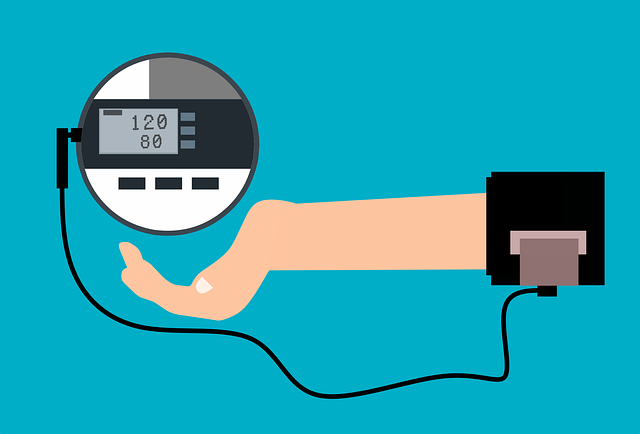Iron deficiency anemia, characterized by low red blood cells, is often diagnosed through the UK Vitamin B12 Blood Test and Complete Blood Count (CBC), which measure hemoglobin levels and vitamin B12. Early detection is crucial for preventing complications. Accurately interpreting test results, maintaining optimal B12 levels through diet or supplements, and regular monitoring with healthcare providers are key to managing anemia and overall well-being.
Iron deficiency anemia is a common yet serious health condition, often characterized by low red blood cell count or hemoglobin levels due to iron deficiency. This article explores how blood tests, particularly a UK Vitamin B12 blood test, play a crucial role in its diagnosis. We’ll delve into understanding the symptoms, interpreting test results, and the next steps for management, empowering individuals with knowledge about this vital health check.
- Understanding Iron Deficiency Anemia and its Symptoms
- How Blood Tests Help Diagnose Iron Deficiency Anemia in the UK
- Interpreting Results and Next Steps After a Vitamin B12 Blood Test
Understanding Iron Deficiency Anemia and its Symptoms
Iron deficiency anemia is a common blood disorder where the body lacks enough healthy red blood cells, which are responsible for carrying oxygen to various parts of the body. This condition often stems from inadequate iron intake or impaired absorption, leading to symptoms such as fatigue, weakness, pale skin, shortness of breath, dizziness, and headaches. It’s essential to recognize these signs, especially in the UK where access to healthcare is readily available.
A UK Vitamin B12 Blood Test can be a valuable tool in diagnosing anemia, as it assesses the levels of specific nutrients crucial for red blood cell production. Iron plays a vital role in carrying oxygen, and its deficiency can cause the body to produce fewer red blood cells, resulting in reduced oxygen delivery to tissues and organs. By identifying low iron levels through a simple blood test, individuals can take appropriate measures to manage or prevent this condition.
How Blood Tests Help Diagnose Iron Deficiency Anemia in the UK
Blood tests play a crucial role in diagnosing Iron Deficiency Anemia (IDA) in the UK, providing essential insights into a patient’s nutritional status. One common approach is through a complete blood count (CBC), which measures various components of red blood cells. This test can reveal low levels of hemoglobin, a protein that carries oxygen and is often indicative of anemia. In the case of IDA, iron deficiency leads to reduced hemoglobin synthesis, resulting in symptoms like fatigue and shortness of breath.
Additionally, UK Vitamin B12 Blood Tests are valuable tools for distinguishing between different types of anemia. Vitamin B12 is essential for maintaining healthy red blood cells, and its deficiency can cause anemia with distinct characteristics. By analyzing blood levels of vitamin B12, healthcare professionals can identify IDA from other forms, ensuring tailored treatment strategies. Early diagnosis through these tests is vital to prevent complications and improve patient outcomes.
Interpreting Results and Next Steps After a Vitamin B12 Blood Test
After undergoing a UK Vitamin B12 Blood Test, it’s crucial to understand and interpret the results accurately. The test typically measures the level of vitamin B12 in your blood, which is essential for red blood cell formation and nerve function. If the result indicates a deficiency, it could be an early sign of pernicious anemia or other underlying health issues. In such cases, further medical evaluation is recommended. Your healthcare provider may suggest additional tests to pinpoint the cause, as vitamin B12 deficiency can stem from dietary deficiencies, absorption problems, or medical conditions affecting the small intestine.
If the test results are normal, it generally means your vitamin B12 levels are within a healthy range. However, even in the absence of deficiency, maintaining optimal levels is crucial for overall well-being. This can often be achieved through a balanced diet rich in vitamin B12-containing foods, such as meat, fish, dairy products, and fortified cereals. In some cases, your doctor might still advise supplementing with vitamin B12 to ensure adequate intake, especially if you follow a strict vegetarian or vegan diet. Regular monitoring and open communication with your healthcare provider are vital steps to manage and maintain healthy vitamin B12 levels.
In light of the above discussions, it’s clear that blood tests, including the UK Vitamin B12 blood test, are crucial tools for detecting iron deficiency anemia. By understanding the symptoms and navigating the diagnostic process, individuals can promptly address potential deficiencies, leading to improved overall health. Remember that early detection through regular checks is key, enabling effective treatment and management of this condition.
